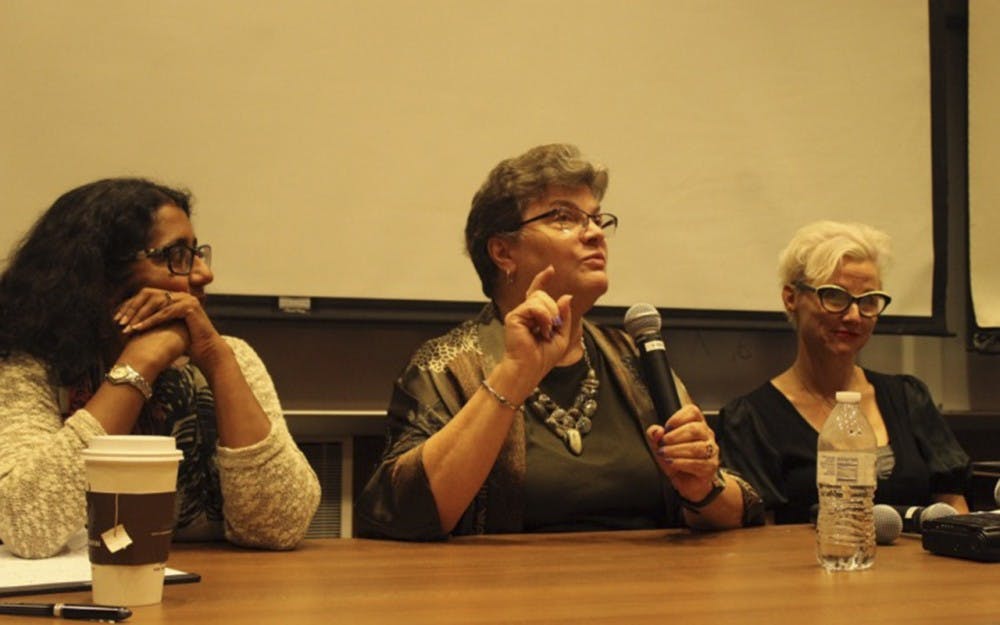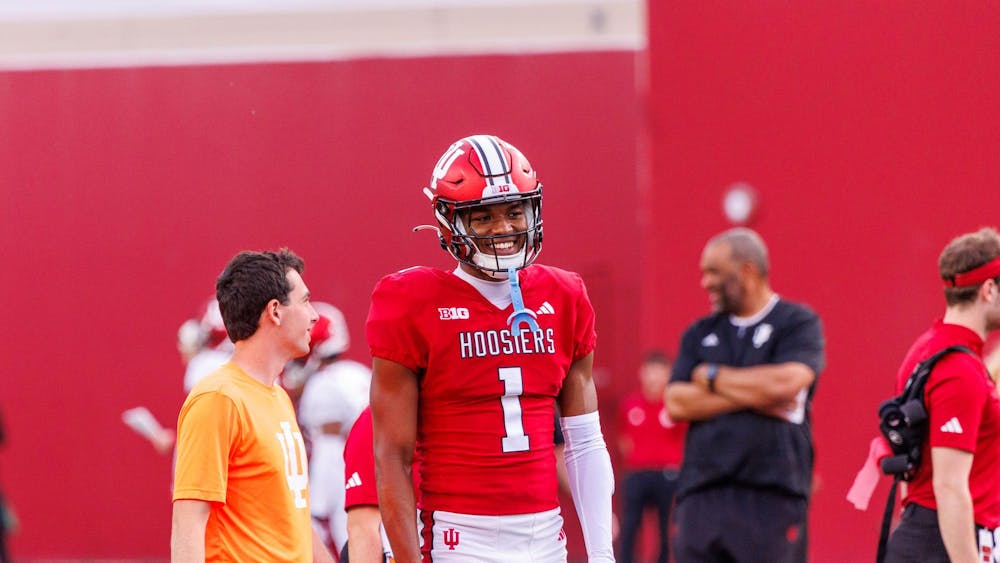Local experts tackled ideas surrounding beauty and how it is represented in mass media Monday during “Dark Side of Beauty,” a documentary screening and panel discussion event regarding unattainable beauty standards.
The film, “The Illusionists,” addressed what unattainable beauty standards look like all around the world and how people interact with them. How people view their bodies and how commercial culture embraces and exploits these feelings was discussed.
Though the film did acknowledge the development of media messages addressing a male standard of beauty, it focused mainly on women and their role in beauty media.
The film ended with a call to action, asking viewers to invest in products associated with values they believe in and to boycott products that are not. Viewers were encouraged to question media messages and to reject the negative ones.
The documentary was followed by a discussion with journalism professor Radhika Parameswaran, gender studies lecturer Jennifer Maher and Nancy Rudd, chair person of the Body Image Health Task Force at Ohio State University, as part of the College of Arts and Sciences Themester.
“We live in a media-centered world today,” Parameswaran said. “Panels like this can raise people’s consciousness about not taking for granted the kinds of images we are exposed to on a daily basis.”
Students were encouraged to question the movie and consider both the points it missed and the points it made.
Involvement was important as university students are prone to the insecurities media often utilizes, Maher said.
“The university is a hotbed of insecurity,” Maher said. “The anxiety is amped up for this demographic of people.”
The panelists focused on issues regarding the sales of skin-whitening products, the use of consumerism, consumer culture and its link to body image, and the sexism and ageism used by advertisers.
“When you see a product like shampoo, which is used across the board by all kinds of people and all kinds of age groups, why is a 75-year-old woman never advertising it?” Parameswaran said.
Though the film addressed a global community affected by commercial culture, the panelists kept the discussion local by appealing to individuals rather than a larger community.
They asked the audience members to evaluate self-worth outside of media standards and to not take media messages at face value, no matter what they might say.
“For the most part we receive media in new genres,” Parameswaran said. “We are not always conscious about how we interpret media.”






